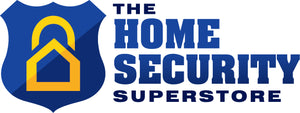According to Wikipedia, “identity theft is a form of stealing someone’s identity in which a criminal pretends to be someone else by assuming that person’s identity usually as a method to gain access to resources or obtain credit and other benefits in a person’s name.”
It is bad enough to have your identity stolen; getting your credit repaired because of the damage to the stolen identity is a nightmare. One of my neighbors recently was shopping at a grocery store where she left her purse unattended in her cart while browsing the produce department. She swears she was only away for a minute but when she came back her purse was gone.
She reported the incident to the store manager and then called police. She was one of the lucky ones because the guy didn’t have many brains and was apprehended about three weeks later. But the damage was done. Her available credit was maxed out on her credit cards and her money was stolen. It could’ve been a lot worse.
It has been estimated that as many as 2% of all citizens are likely to become a victim to identity theft as a result of a data breach. It is the fastest growing crime in the United States. Many perpetrators of identity theft are based overseas using hacking programs such as Zeus “which can steal credit card information and important documents and even documents for homeland security”. There’s even a software app for credit card theft. It makes you wonder ‘is anyplace safe from identity theft?’
The Identity Theft Resource Center puts this hot topic into five categories with financial identity theft being the most popular.
The most common ways that criminals gain your personal information is by ‘dumpster diving’, skimming-a technique whereby thieves steal credit card numbers by using special storage devices attached to ATM machines or card readers at gas stations; phishing-a technique that criminals use sending spam or pop-up messages to get you to reveal your personal information and browsing social networking sites for personal information.
These criminals are very creative. For example, some post bogus jobs in newspaper ads seeking resumes or by using spyware that can monitor keystroke logging. The list knows no bounds. You must constantly be aware of an endless assault against your privacy.
Experts suggest that you:
- Check your credit report from each of the three major credit bureaus annually.
- Try to avoid using a shared connection with your laptop.
- Avoid offers that are too good to be true.
- Only enter your personal information on secure web pages that encrypt your data in transit. You can tell if the page is secure by the “HTTPS” designation in the URL.
- Protect your credit card numbers at all costs.
- Take steps today to prevent your identity from being stolen.
This ID Theft Roller Set jumbles confidential info printed on bills, checks, letters, junk mail, and more by using a specially-designed permanent ink security pattern.
This Stainless Steel Wallet prevents thieves from scanning RFID numbers on your credit cards-the new form of pick pocketing.
